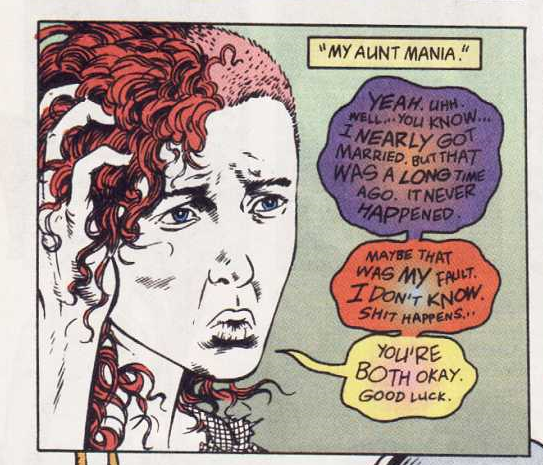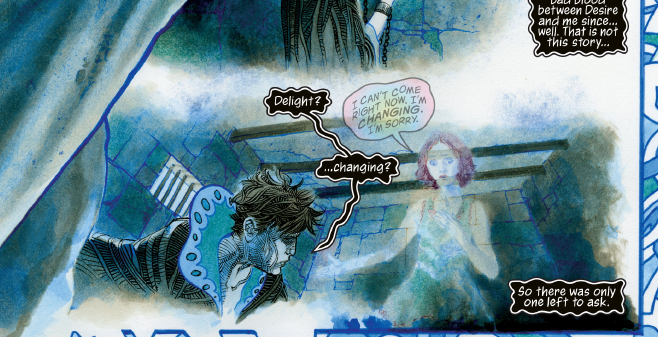There will be a lot of pictures here.
Possibly because she realised, like her elder siblings, that not only she has tremendous responsibilities - she is bound and shaped by them.
One other overarching theme in The Sandman is responsibility. Dream takes his responsibilities very seriously, but he knows there's more to it - namely the fact that he, and the other Endless, are shaped by them.
In a panel from the epilogue of The Doll's House, Dream tells to Desire that it is the Endless who are puppets of the living beings, not the other way around. After Dream leaves, Desire refuses to believe that, and provides interesting insight into the thought processes of the Endless:
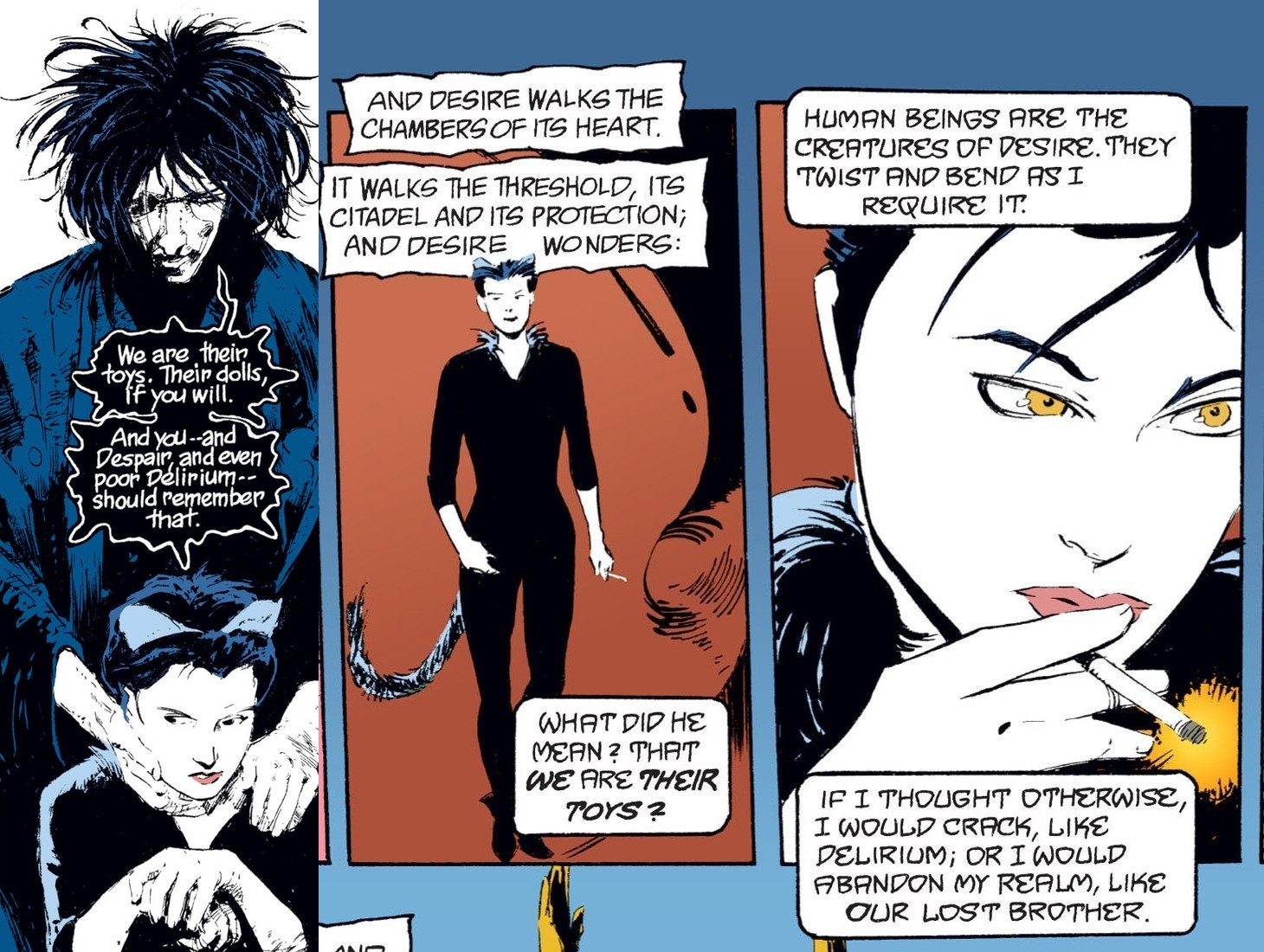
Here and afterwards, all pictures are clickable to see the full-resolution version.
The realisation of the fact that the Endless are merely servants appears to be hard for them. For one thing, Destruction did abandon his realm, precisely because he realised the Endless, as the embodiments of their respective areas of influence, are not needed at all - the Universe can do as well without them.
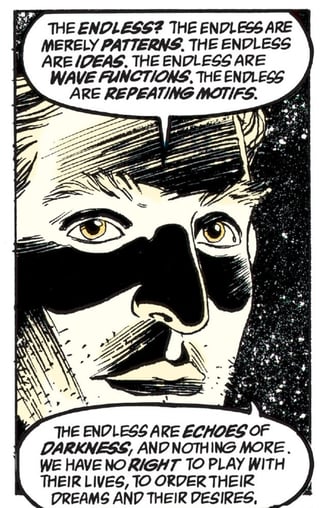
Brief Lives, chapter 8: "Journey's End".
Destruction, and creation, is still occurring - only Destruction is not responsible for it:
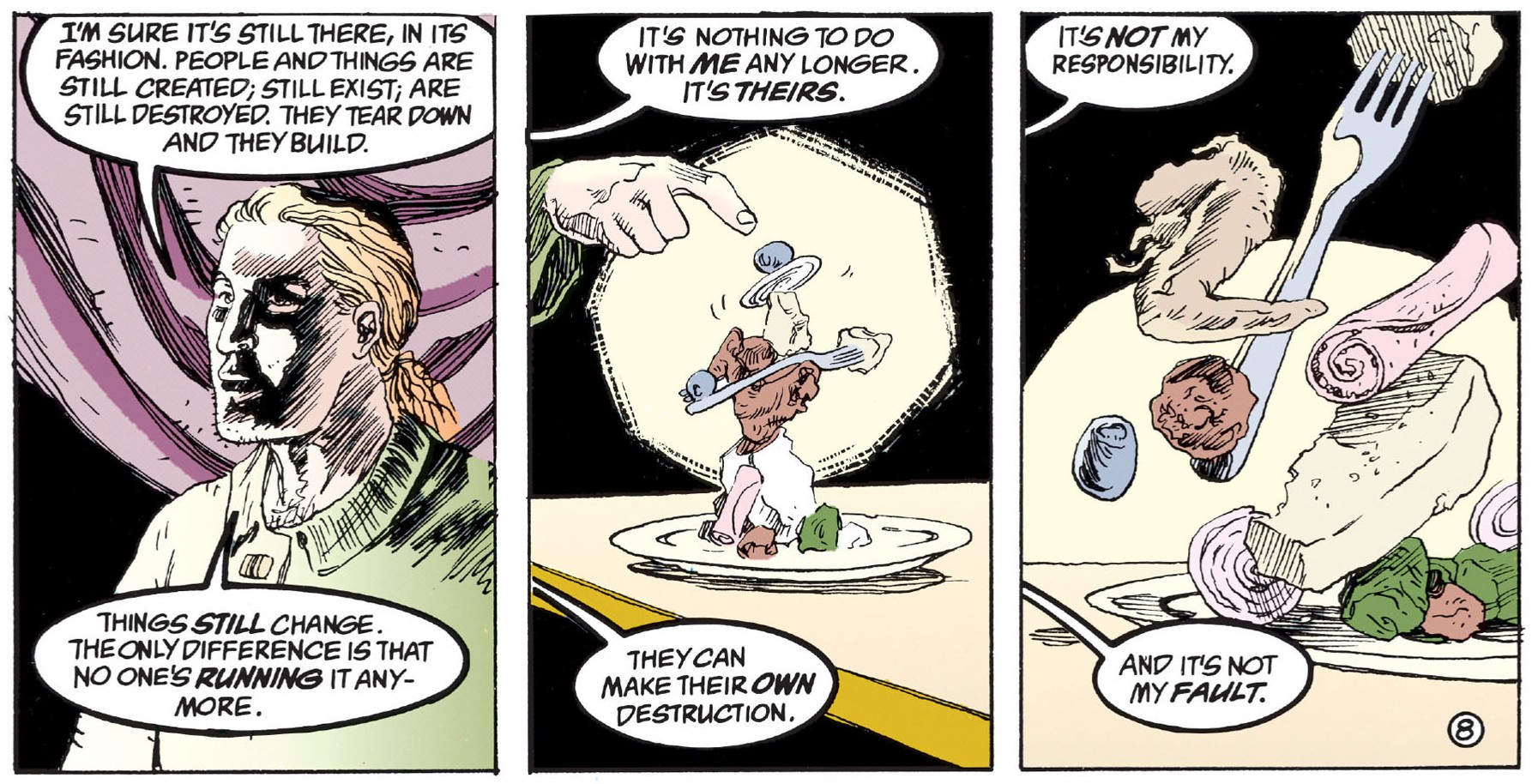
Ibid.
When Dream was imprisoned in Preludes and Nocturnes, people still kept on sleeping and dreaming (although there was a short period of encephalitis lethargica, and The Dreaming had decayed as well):
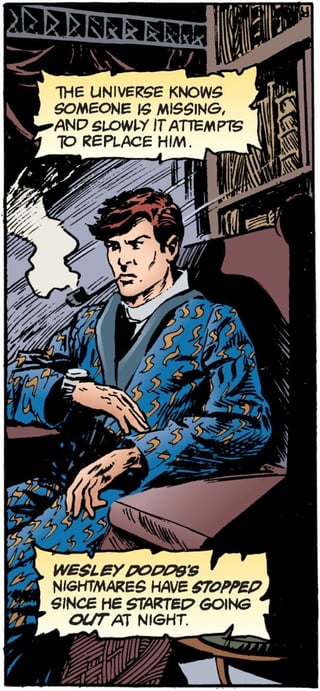
The Sandman #1 - "Sleep of the Just".
Going back to Delirium, she seems to know very well why she changed from Delight:
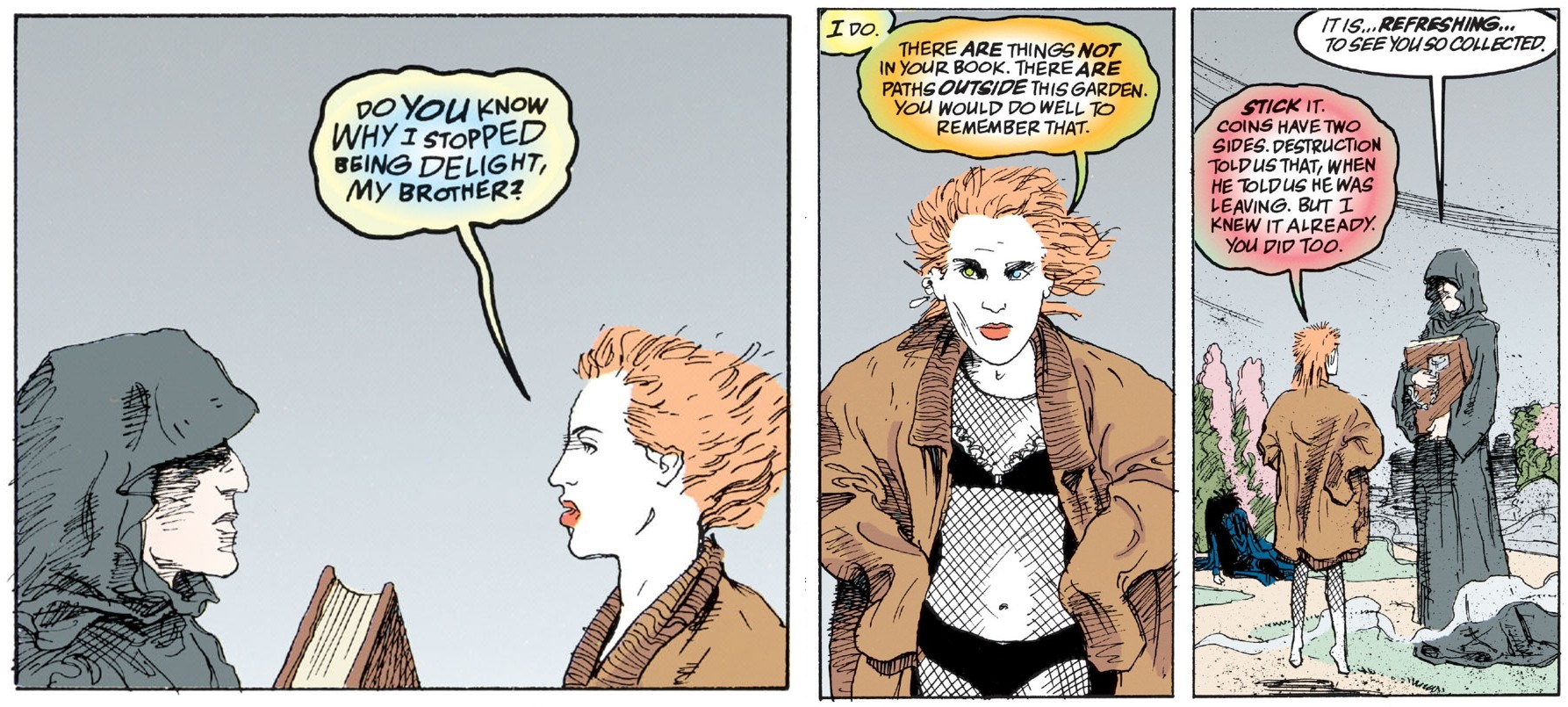
Brief Lives, chapter 7.
She practically confirms the things Destruction later says about the Endless and their responsibilities.
The paths outside of Destiny's garden are not elaborated on in the main series, but we get an idea about them in The Sandman: Overture:
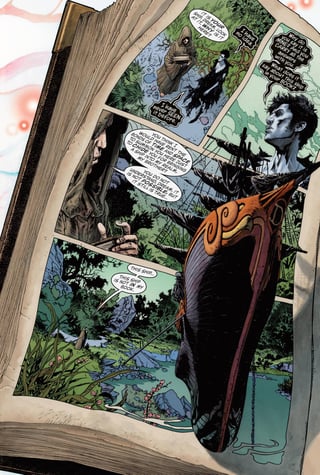
The Sandman - Overture #5
This ship was created by the dreamers, in a desperate attempt to flee the destruction of the universe. It was not originally a part of this universe - and in the end of Overture, when the universe was permanently overwritten, it was shaped by the dreams of the passengers of that ship. This part is similar to "The Dream of a Thousand Cats", which is also mentioned in Thaddeus' answer:
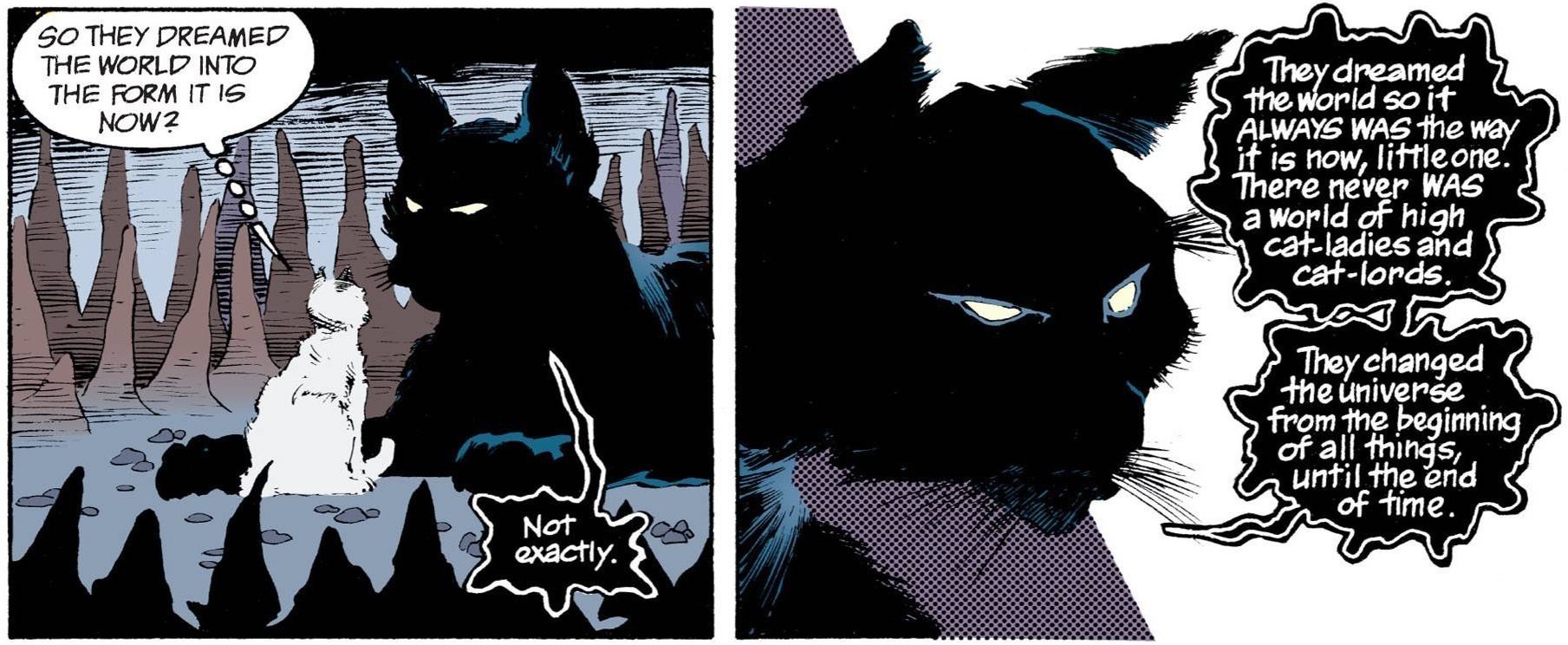
Dream Country, "The Dream of a Thousand Cats" (issue #18)
No one, even the Endless (except only Dream), remembered anything from the previous universe, because it never even existed:
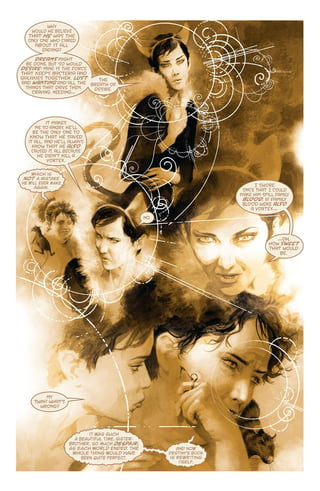
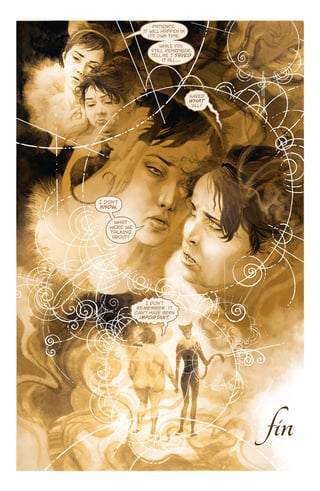
The Sandman - Overture #6
So the dreamers, and by implication - all leaving beings - have power over even Endless, and Desire was not happy at all about it. I'm not quite sure why Delight was affected so drastically by this revelation, but there's a bit of information from The Sandman Companion, where Hy Bender and Neil Gaiman discuss the origins of the Endless:
NG: I decided Delight would would make for a very appropriate past existence for Delirium, because she's a character I wanted in a state of flux - she's been one thing, she's become something else, and eventually she'll change into something else again.
HB: Is this state of flux unique to Delirium?
NG: Yes. It has to do with her being the youngest; she's practically a cosmic afterthought.
The Sandman Companion, chapter 13 "Secret Origin", page 241 (first edition).
Purely for comparison, this is true even for Death - Hob Gadling, for instance, will not die because he doesn't want to; this is another example of an Endless being dependent on the will of their subjects.

Doll's House, "Men of Good Fortune".
There is another side to this - Delirium realises she is subject to the will of living beings, yes, but she also knows that she affects their lives as well, even indirectly:
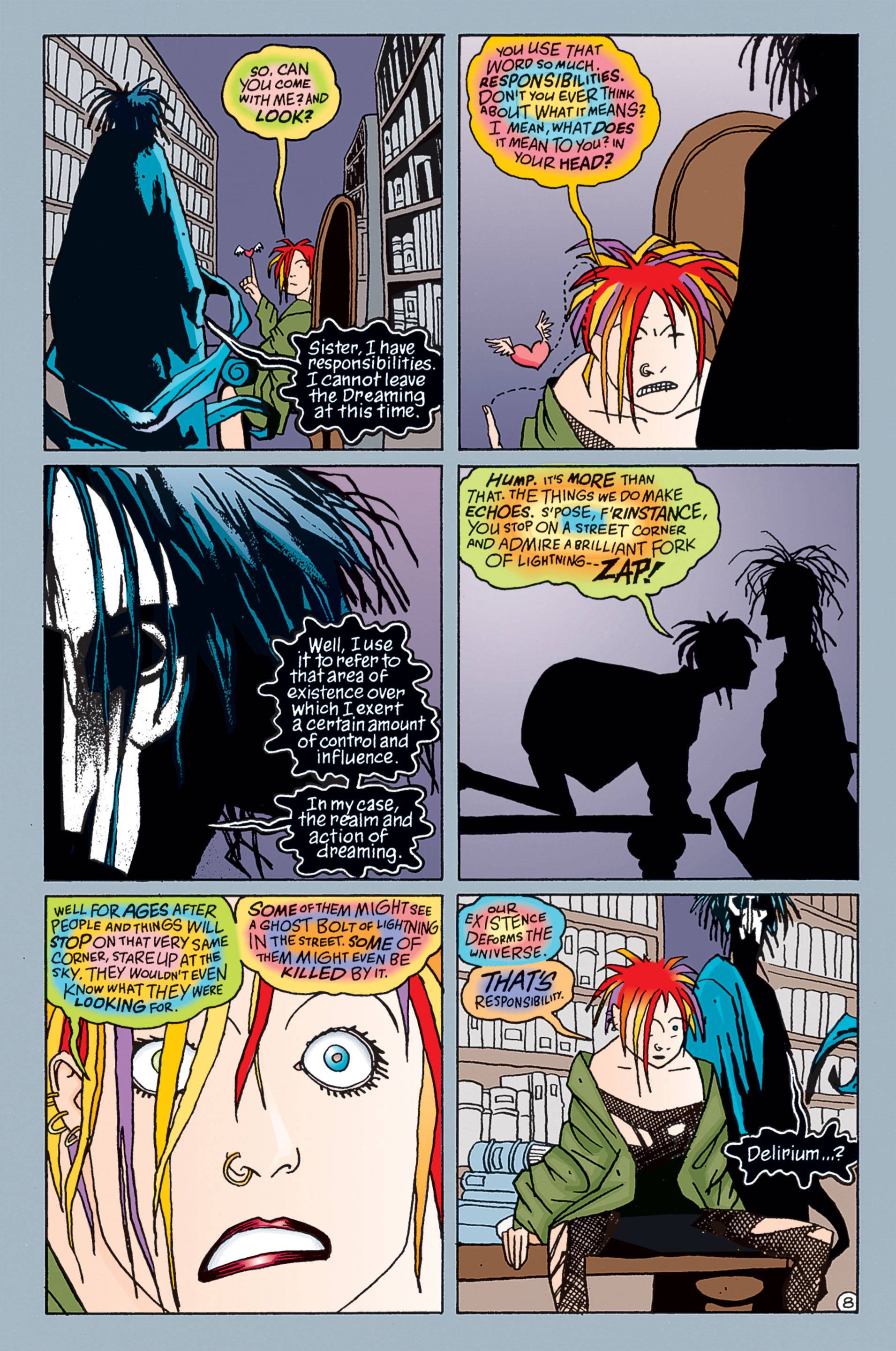
The Kindly Ones
And she also says that her and Destruction's mere presence caused a wibbly-wobbly ball of reality alteration in "On the Peninsula", the Destruction story from Endless Nights:
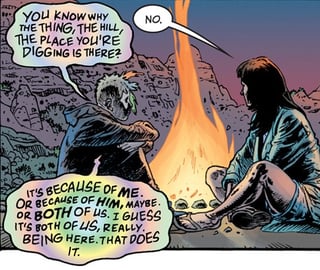
Though Delirium doesn't usually show it, occasionally her wisdom pours out, and proves that she knows at least as much as her siblings, if not more:
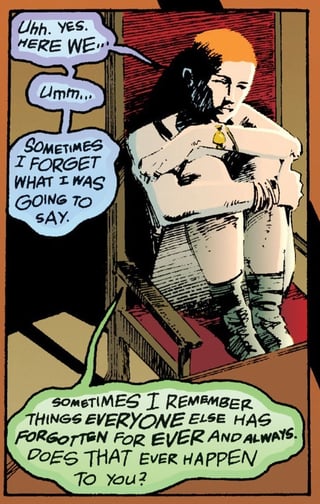
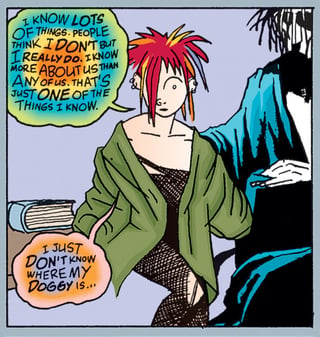
Left - Season of Mists chapter 1; right - The Kindly Ones.
I conclude that a combination of factors caused her to be changed from Delight to Delirium:
Her age makes her unique among the Endless, always in a state of change.
Despite her age, she is very wise, but it looks like in her case the wisdom came at a price - staying in the "serious" state causes her pain, so most of the time, it's easier for her to be a bit crazy, and sometimes fish.















